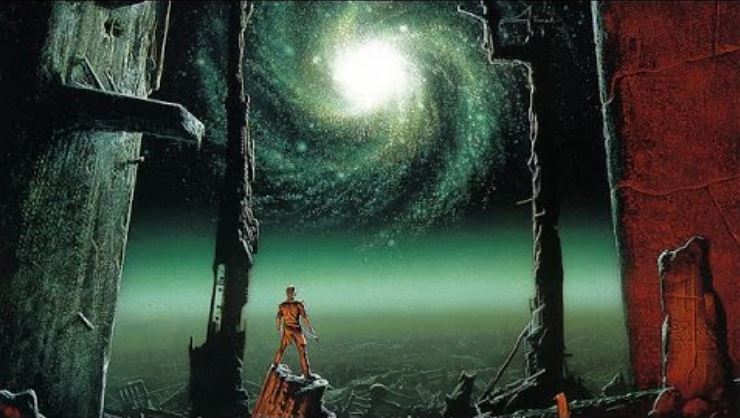What if we could use science to predict the future of humankind and, thereby, prevent the collapse of civilization as a result of wars, economic crises or any other unforeseen event that could endanger its existence?
This is the starting point of the Foundation saga, a series of seven books written by the brilliant and multifaceted author Isaac Asimov. The saga takes place in a distant future where humans have colonized millions of planets, creating an empire that extends to the limits of the galaxy.
The first book of the saga introduces Hari Seldon, a mathematician living on the planet Trantor, the capital of the Galactic Empire. Seldon develops a new science based on history, psychology and mathematics (he calls it psychohistory) that allows to make probabilistic predictions about the future of humankind.
After analyzing the prospects of civilization using the tools of psychohistory, Seldon concludes that the Galactic Empire, which had survived for thousands of years, will inevitably collapse in 500 years, inaugurating a dark era that will last thousands of years.
In order to minimize the dramatic consequences of such a collapse, Seldon exiles himself to Terminus, a planet on the edge of the galaxy, and creates an organization called Foundation, whose aim is to deploy a long-term plan devised by Seldon himself to prevent chaos and destruction from taking over the galaxy after the fall of the Galactic Empire. This is the beginning of a fascinating quest to save civilization.
The strife for power is a central theme throughout the series. Foundation moves from being the underdog (a small confederation of planets on the edge of the galaxy) to becoming the new empire Seldon had longed it to be. In contrast, the Galactic Empire moves in the opposite direction: an all-powerful entity that initiates a period of decadence, paving the way for the rise of a new empire led by the intellectual heirs of Hari Seldon.
However, political power isn’t the only theme in the series, not even the main one. Idealism also plays an important role in Foundation. After all, the story begins as the struggle of a group of idealists to pursue their convictions against the status quo. In this sense, Hari Seldon can be seen as the Galileo of his time, trying to present his scientific theories to a world unwilling to accept them.
The exploration of the universe is also a recurrent theme in Foundation. The Russian-American author creates a fascinating universe that serves as a dynamic background with which the characters interact. In this respect, the first trilogy of Foundation can be considered the precursor of modern science-fiction franchises like Star Wars, Doctor Who, Star Trek or, more recently, Stargate.
In addition, Asimov warns us against the dangers of disregarding the extreme complexity of human societies. Seldon thought psychohistory was infallible due to its science-based predictive power. Yet a black swan turns his plans upside down, proving the limitations of social sciences when it comes to making long-term forecasts about the future and prospects of humankind.
Finally, history is very present in the Foundation saga. Note, for instance, the obvious parallelisms between the Galactic Empire of Asimov’s novels and the Roman Empire: a vast empire that ruled the known world for hundreds of years and collapsed, giving rise to a period of decay and darkness. After all, history was one of the three passions of Asimov, the other two being science and science fiction.
The original Foundation series was published in the 1950s and consists of three books: Foundation, Foundation and Empire, and Second Foundation. In the 80s and 90s, Asimov wrote two sequels (Foundation’s Edge and Foundation and Earth) and two prequels (Prelude to Foundation and Forward the Foundation) to end the saga. In Foundation and Earth, Asimov merges the Foundation universe with the universe of his robot novels.
What’s the right order to read the Foundation series? There are two options: either in order of publication or in chronological order of the events described in the books. If you are diving into the Foundation universe for the first time, I highly recommend you follow the former. However, if you are already familiar with one of the most popular sagas in the history of science fiction, you can try reading them in chronological order.
In sum, the Foundation series—which Apple reportedly is adapting into a television series—is a masterpiece of science-fiction literature. Asimov engages the reader from the first page to the last by means of his lucid narrative. If you are into science fiction and haven’t had the opportunity to read the Foundation books, what are you waiting for to start?
—
Dear Readers,
Big Tech is suppressing our reach, refusing to let us advertise and squelching our ability to serve up a steady diet of truth and ideas. Help us fight back by becoming a member for just $5 a month and then join the discussion on Parler @CharlemagneInstitute!
















Leave a Comment
Your email address will not be published. Required fields are marked with *